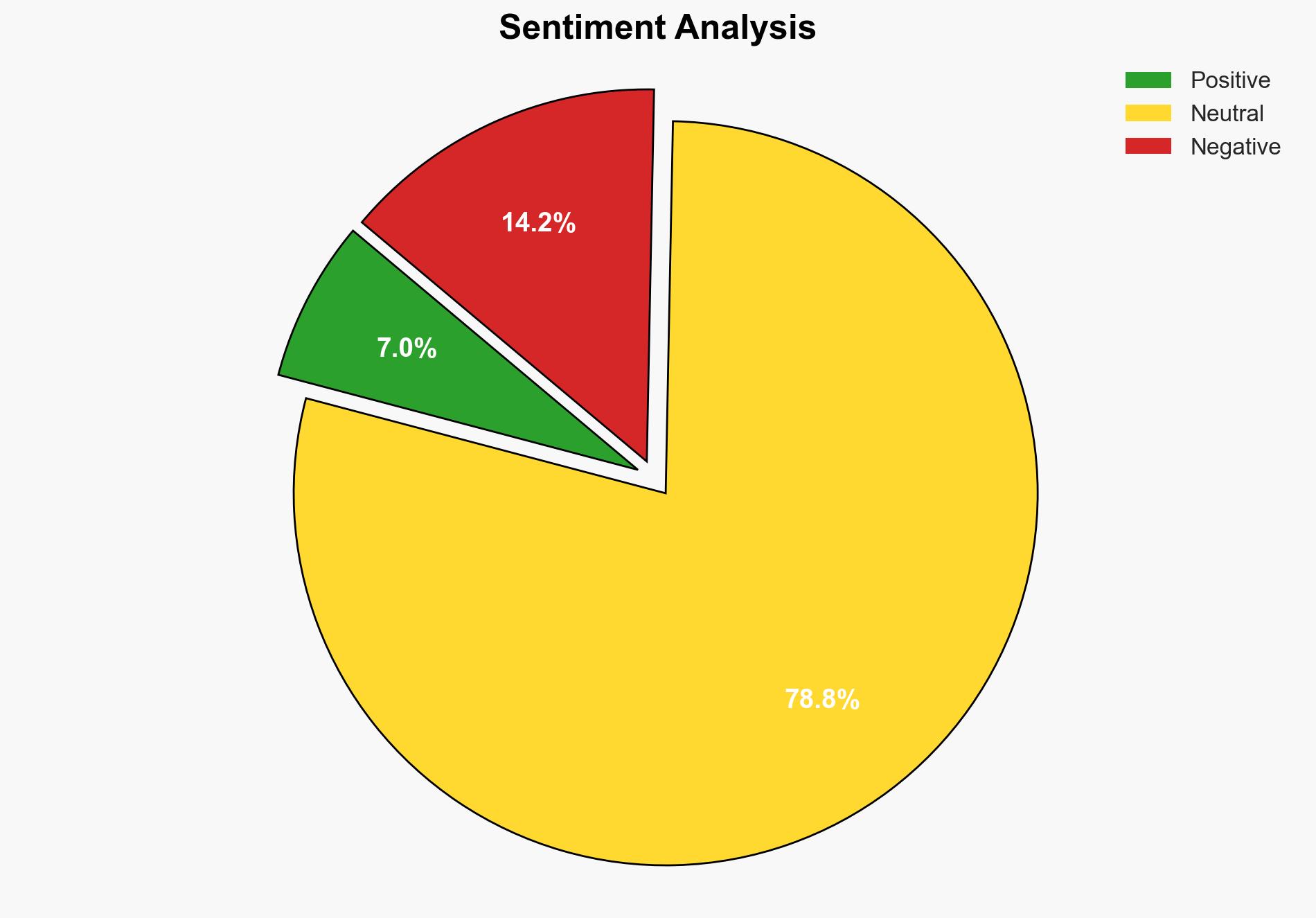3 convicted of spying for Russia in UK accused of setting honeytraps – CBS News
Published on: 2025-03-07
Intelligence Report: 3 Convicted of Spying for Russia in UK Accused of Setting Honeytraps – CBS News
1. BLUF (Bottom Line Up Front)
Three individuals, Katrin Ivanova, Vanya Gaberova, and Tihomir Ivanov Ivanchev, have been convicted in the UK for espionage activities on behalf of Russian intelligence. The group was accused of setting honeytraps and engaging in surveillance activities across Europe. Their actions have significant implications for national security and regional stability, necessitating immediate counterintelligence measures and policy reviews.
2. Detailed Analysis
The following structured analytic techniques have been applied for this analysis:
SWOT Analysis
Strengths: The UK’s legal and intelligence frameworks successfully identified and prosecuted the espionage activities.
Weaknesses: The presence of espionage activities indicates potential vulnerabilities in counterintelligence measures.
Opportunities: Strengthening international cooperation on intelligence sharing could enhance detection and prevention of similar threats.
Threats: Continued espionage activities could destabilize regional security and undermine public trust in governmental institutions.
Cross-Impact Matrix
The espionage activities in the UK may influence neighboring countries by increasing security measures and intelligence operations. This could lead to heightened tensions and a reevaluation of diplomatic relations with Russia.
Scenario Generation
Potential scenarios include increased espionage activities leading to stricter security protocols across Europe, or diplomatic negotiations resulting in a reduction of such activities. Alternatively, failure to address these threats could escalate into broader regional conflicts.
3. Implications and Strategic Risks
The conviction of these individuals highlights significant risks to national security, including the potential for further espionage activities and the exploitation of technological vulnerabilities. The threat to regional stability is underscored by the possibility of similar operations in other European countries. Economic interests may also be at risk if espionage activities target critical infrastructure or key industries.
4. Recommendations and Outlook
Recommendations:
- Enhance counterintelligence capabilities and increase surveillance of suspected espionage activities.
- Strengthen international intelligence-sharing agreements to better identify and mitigate threats.
- Implement technological upgrades to secure communication networks and prevent data breaches.
Outlook:
In the best-case scenario, enhanced security measures and international cooperation reduce espionage activities. In the worst-case scenario, failure to address these threats leads to increased regional tensions and potential conflicts. The most likely outcome involves ongoing vigilance and incremental improvements in counterintelligence operations.
5. Key Individuals and Entities
The report mentions the following significant individuals: Katrin Ivanova, Vanya Gaberova, Tihomir Ivanov Ivanchev, Orlin Roussev, Biser Dzhambazov, Jan Marsalek, and Christo Grozev. These individuals are central to the espionage activities and subsequent legal proceedings, highlighting the need for continued monitoring and investigation.





